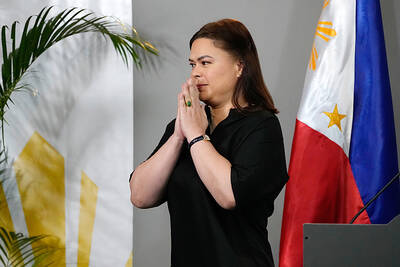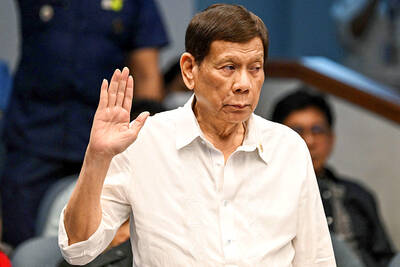Through a drumbeat of almost daily scoops and leaks, the Washington Post and the New York Times have emerged as the titans of news in the age of US President Donald Trump.
Then-US national security adviser Michael Flynn was forced to step down after the Washington Post revealed he had misled US Vice President Mike Pence about his communications with the Russian embassy.
The New York Times revealed that Trump had asked former FBI director James Comey to halt his investigation into Flynn.
The president boasting to Russian diplomats about firing Comey.
The talks between those same diplomats and Trump’s son-in-law or his attorney general.
These, and almost all the stories feeding the extraordinary news cycle of Trump’s administration, have been broken by the two dailies.
Other media outlets, such as CNN, have had their scoops, but none on the scale of the Post or the Times.
“I think the perception is the reality. They are the dominant news organizations,” Syracuse University journalism professor Joel Kaplan said.
From the ground-breaking scoops of Watergate and the Pentagon Papers, the Post and the Times have accumulated decades of experience in investigative journalism.
The self-proclaimed watchdogs of the Trump White House have become the go-to address for anyone within the administration wanting to leak information anonymously.
To cope with the deluge of news, the papers now have unprecedented resources at their disposal. The Times has six journalists exclusively covering the White House, backed by a five-person investigations unit, more than at any point in its history.
Even as it was putting the finishing touches to voluntary redundancy packages in January, the paper was earmarking US$5 million for coverage of the Trump White House.
The Post has an eight-member White House team and many more covering government news in general.
“This is war,” USC Annenberg School for Communication and Journalism professor Gabriel Kahn said. “We are in an information battleground ... they cannot get one fact wrong.”
“They really are the only news organizations going which have the resources to do these types of stories,” Kaplan said.
At stake is more than just the professional pride of the journalists involved: Between September last year and March, the Times gained 644,000 subscriptions.
The Post is owned by Amazon.com founder Jeff Bezos and does not release its sales data, but publisher Fred Ryan said online subscriptions were up 75 percent last year.
“This is a sort of a happy instance where following the news and chasing down every lead and breaking story after story is good news practice but it’s also good business practice,” Poynter Institute media economist Rick Edmonds said. “They’re trying to leverage that to even further boost their audience and their paid audience.”
Such editorial quality is being used by both papers to set themselves apart from the pack.
“There is a deepening recognition outside the building that the Times is vital to the future of the country, one of the few institutions with the drive and ambition to cover a changing Washington,” New York Times executive editor Dean Baquet and managing editor Joe Kahn wrote this week.
The papers are also trying to expand their traditional readership.
“Young people are out there now, they don’t read newspapers, but they do look at their phones and their tablets and they say: This information is important to me and it’s now worth paying for,” Kaplan said.
The Internet revolution, with the proliferation of social media networks and news sites that had no expensive print publications, have muddied the media waters in recent years and hurt daily papers.
However, since Trump’s election last year, the hierarchy of news has once again been clearly established.
“This is a renaissance of news,” Kaplan said. “The value of news and the importance of information, not fake news, but real news and facts and what’s happening has undergone a dramatic change in the last six months, something that we’ve never seen before.”
“People now want to go to the direct source where the news came from, that’s not going through other people’s filter,” he said.

FEROCIOUS FISH-EATER Scientists have found a new species of dinosaur from the Cretaceous Period, a ‘hell heron’ that stalked the rivers, deep in the Saharan desert At a remote Sahara desert site in Niger, scientists have unearthed fossils of a new species of Spinosaurus, among the biggest of the meat-eating dinosaurs, notable for its large blade-shaped head crest and jaws bearing interlocking teeth for snaring fish. It prowled a forested inland environment and strode into rivers to catch sizable fish like a modern-day wading bird — a “hell heron,” as one of the researchers put it, considering it was about 12 meters long and weighed 5-7 tons. The dinosaur presented a striking profile on the Cretaceous Period landscape of Africa some 95 million years ago as it hunted

‘COST OF DEFECTION’: Duterte’s announcement could be an effort to keep allies in line with the promise of a return to power amid political uncertainty, an analyst said Philippine Vice President Sara Duterte yesterday announced she would run for president of the Southeast Asian nation of 116 million in 2028. Duterte, who is embroiled in a bitter feud with Philippine President Ferdinand Marcos Jr, was impeached last year only to see the country’s Supreme Court throw the case out over procedural issues. Her announcement comes just days before her father, former Philippine president Rodrigo Duterte, begins a pretrial hearing at the International Criminal Court (ICC) in the Netherlands over crimes against humanity allegedly committed as part of a brutal crackdown on drugs. “I offer my life, my strength and my future

NOT YET THERE: While the show was impressive, it failed to demonstrate their ability to move in unstructured environments, such as a factory floor, an expert said Dancing humanoid robots on Monday took center stage during the annual China Media Group’s Spring Festival Gala, China’s most-watched official television broadcast. They lunged and backflipped (landing on their knees), they spun around and jumped. Not one fell over. The display was impressive, but if robots can now dance and perform martial arts, what else can they do? Experts have mixed opinions, with some saying the robots had limitations and that the display should be viewed through a lens of state propaganda. Developed by several Chinese robotics firms, the robots performed a range of intricate stunts, including martial arts, comedy sketches and choreographed

DRUG WAR: The former president said there was no campaign to kill addicts, but his speeches called for violence and told police to use lethal force if necessary Former Philippine president Rodrigo Duterte earned global infamy for the deadly drug crackdown that led to his arrest over crimes against humanity charges, despite his huge popularity at home. A profane-lipped populist and self-professed killer, Duterte’s anti-crime campaign resulted in the deaths of thousands of alleged dealers and addicts. Rights groups said many of those killed were poor men, often without any proof they were linked to drugs. Yet, while drawing condemnation abroad, tens of millions of Filipinos backed his swift brand of justice — even as he joked about rape in his rambling speeches, locked up his critics and failed to